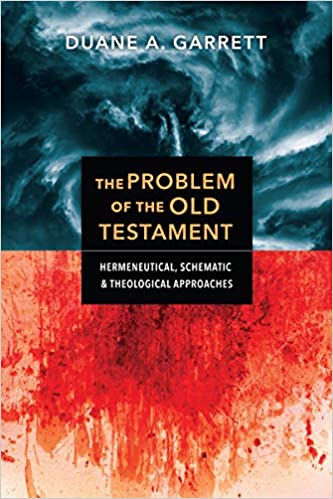A Brief Book Summary from Books At a Glance
by Kirsten Birkett
About the Αuthor
Duane A. Garrett is John R. Sampey Professor of Old Testament Interpretation at The Southern Baptist Theological Seminary. He has served on the faculty at Gordon-Conwell Theological Seminary, Bethel Seminary, Canadian Southern Baptist Seminary, Mid-America Baptist Seminary, and Korea Baptist Seminary.
Contents
Part 1: Facing the Problem
- Defining the Problem
- The Old Testament in the Early Church
Part 2: Inadequate Solutions
- The Hermeneutical Solutions: Alexandria
- The Hermeneutical Solutions: Antioch
- The Schematic Solutions
- The Conceptual Solutions
Part 3: A New Approach
- Foundations for an Old Testament Theology
- Election and the Covenants
- The Law
- Issues in Narrative
Part 4: Case Studies in Prophecy
- The Prophetic Method: Hosea
- The Prophetic Method: Joel
- Summary and Prospect
General Summary
A defense of the Old Testament as Christian Scripture fulfilled in Christ, and the basis of a model for understanding it, but in distinction from both covenant theology and dispensationalism. Fairly accessibly written text with reference to the Hebrew in footnotes. The text is sometimes interrupted with an ‘excursus’ into a mentioned issue in more detail.
Part 1: Facing the Problem
Chapter 1: Defining the Problem
Christians can struggle to understand the Old Testament or its relevance to Christian life. Much seems inaccessible, or even morally repugnant. The Old Testament is:
- Hard to define. It is not all about covenantal salvation history, it is not just about a messianic figure, it is not straightforward spiritual instruction. Any definition of the Old Testament also runs the risk of being selective or biased according to our preconceptions; but nonetheless, a comprehensive, contextual, and Christian description of the Old Testament is possible. Rational public discourse is possible despite the problems of subjectivity.
- Hard to read. It can be a struggle to read genealogies or prophecy; there can be translation difficulties; there are major cultural differences from the modern world; and it is full of evil and moral failure.
- Hard to reconcile with the New. The claim that the Old Testament predicts Jesus is not always straightforward. We cannot gloss over all difficulties with claims of mystery, sensus plenior, an appeal to Midrashic exegesis, or apostolic authority. . . .
The remainder of this article is premium content. Become a member to continue reading.
Already have an account? Sign In
